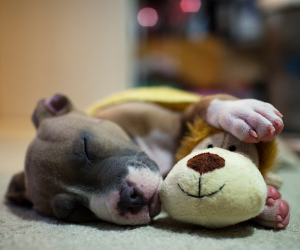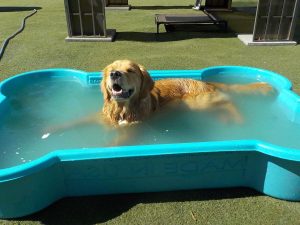The Real But Rewarding Struggles Of Rescuing A Dog
Rescuing a dog can be a very rewarding experience, but it doesn’t always come without challenges. When rescuing from a shelter like SPCA, it’s important to know not every rescue dog comes with issues but every single one of them will need your support and love as they transition into your home from their respective rescue shelters. We have put together a fantastic list to help you and your new best friend have a smooth adjustment to each other’s lives.
 Transportation
Transportation
The first thing you’re going to learn about taking any dog home is travel. You might get a list from the rescue – or shelter – about what your dog likes and dislikes, but it’s up to you to know how to transport them.
First: you’re going to need a supply kit, regardless of how far you’re going. The kit will need to be bigger, depending on how long the trip will be. This should include towels, food, water, a toy, cleaning supplies, a spare leash and collar, collapsible dishes, and some old clothes. The clothes are important for them, as it helps them get used to your scent right away. It also gives them some form of comfort while in transport. The additional leash and collar are for emergencies, just in case the originals break, or inevitably don’t work for the trip. You’ll want to pack extra food, treats, and toys for your new pup, to show them that this is a fun adventure. However, don’t be offended if they aren’t excited about any of it. This is a big move for them, and they might not be as open as you’d like. If you can get an item from the rescue or shelter that your dog is already comfortable with, try to bring it for the ride.
If you’ve never owned a dog before, you’re not expected to have all of these supplies handy. We suggest you borrow them from friends or pick up less expensive items from your local pet store. Until you know what works for your new dog, spending lots of money on supplies right away might not be the best idea. For longer transport rides, try to bring items that you don’t mind throwing out afterwards – like towels or blankets.
It’s okay to make mistakes on the first day, just try your best to be prepared.
Getting To Know Your Dog
Other than what you’ve been told by the rescue, you’re going to pick up on your dog’s unique quirks and qualities over time. Every dog is different. So, don’t expect your new pup to be like any of your previous ones or ones you’ve met before. Take time to notice the small habits your dog has, or what personality traits make them unique. After all, this is why they’re special to you.
You’ll have to work on their timeline for a while – whether it be exercising at the same time, or syncing your dinner schedules – but as they start to get more comfortable, you can adjust your days to what works best for you. Figure out what makes them tick – where they like to use the washroom, where they want to explore, what place in the house is their favourite, or simply what they gravitate to. Getting to know your dog is the most important part of a rescue.
Another part of becoming familiar with your dog will rely on veterinary checkups. You want people with professional experience to observe your dog, for the things you’re not going to notice. They’ll be able to give you tips on what you should be aware of or keep an eye on. They’ll know what’s “normal” for your dog, and what might need to be worked on – whether it’s health or behavioural. It’s always best to get a vet checkup within the first week of bringing your dog home. Some vets will even do this for free!
 What Makes Them Happy?
What Makes Them Happy?
You’ll spend a lot of time with your dog – bouncing from treat to treat, and toy to toy – to see what really gets their tail wagging. It could be a belly rub, scratches behind the ear, or a simple “Who’s a good boy/girl?” Focussing on the positives will make this a great experience for both of you.
While you’re trying to figure this out, also keep an eye on what makes them uncomfortable. If the leather couch is too cold, your chair is too squeaky, or something in the house is bothering them, adjust your lifestyle as much as possible to suit their needs. This will help your dog destress in their new home, and give you the peace of mind you’re going to need during the initial settling process. You’ve got a new family member, and it’s your job to help them feel like this is their space too.
Building Trust
Working through training and timelines can be extensive, but very useful for building trust. The more your dog understands you, the more they trust you. You can get through aggression, fear, or other awkward situations by working with them consistently and in a positive way. Going with their flow is important, while also making slight changes for the better. This is going to take a lot of time and patience. So, don’t be frustrated if you don’t notice improvements right away.
After learning what makes them happy, use that to build trust with them. You want them to know that any time they feel threatened, scared, angry, or upset, they can turn to you for comfort and support. That trust will carry you through everything, and make life with them much more enjoyable.
 Training Hiccups And First Experiences
Training Hiccups And First Experiences
The first sleep, the first walk, and the first bath are going to be some of the most stressful experiences you’ll have with your new dog. These moments might make you reconsider bringing a dog home, but trust us, it’s worth the effort.
The first training steps are going to be tough, but consistency and positive rewards will make the process move much more quickly. Try your best to make these fun experiences. No, your dog isn’t going to understand everything right away, but they will eventually. Just keep working at it. Expect the hiccups, and prepare for them. If you’re struggling with training techniques, reach out to friends, family, or professionals that have more experience. Remember to make everything a positive experience for your dog. That way, they’ll be more interested in learning new things in the future. And don’t forget to enjoy each milestone with your dog. They’ll pass by too quickly otherwise.
Spend Time And Expect The Unexpected
Every day with your new dog is going to be different. You’re going to learn new things about them simply through spending time together. So, treat each moment as a new learning experience. The best advice anyone can give you is to continue being patient and understand that your new dog is experiencing everything for the first time as well. Everything they had before has suddenly vanished, and it’s now your job to build a new life together.
The best thing you both can do is spend as much time together as possible, and be flexible. Clear your schedule, put aside some projects, and spend time with your dog. It’ll be hard to do, and you might have a lot to catch up on later, but it will help ease some of the beginning struggles of owning a pet. As you spend time with each other, you’ll learn about habits, patterns, and most of all, comfort.
 The first few months will set the tone for the rest of your life with your new pup. So, cherish every moment, take your time, and be flexible.
The first few months will set the tone for the rest of your life with your new pup. So, cherish every moment, take your time, and be flexible.

 Transportation
Transportation What Makes Them Happy?
What Makes Them Happy? Training Hiccups And First Experiences
Training Hiccups And First Experiences